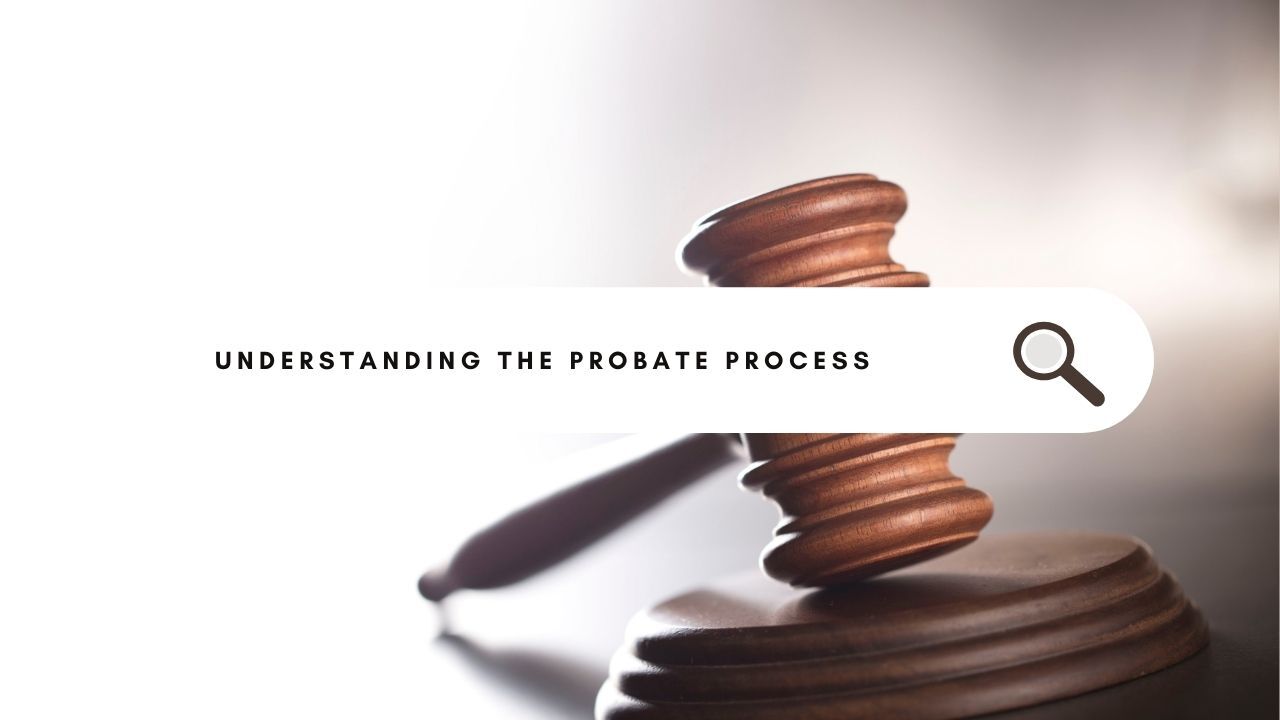 The probate process can seem complicated, but for homeowners and beneficiaries, understanding its key steps can make a significant difference. Whether you are dealing with a loved one’s estate or planning for the future, knowing how probate works can help you navigate the legal aspects of transferring property efficiently.
The probate process can seem complicated, but for homeowners and beneficiaries, understanding its key steps can make a significant difference. Whether you are dealing with a loved one’s estate or planning for the future, knowing how probate works can help you navigate the legal aspects of transferring property efficiently.
What is Probate?
Probate is a legal process that takes place after someone passes away. It ensures that the deceased person’s debts are settled and their remaining assets, including real estate, are distributed to the rightful heirs or beneficiaries. If the deceased left a valid will, the probate court follows their instructions. If no will exists, the court distributes the estate according to state intestacy laws.
While probate is often necessary for transferring property, it can be time-consuming and costly. Knowing the process and potential alternatives can help homeowners and their families make informed decisions.
Steps in the Probate Process
Understanding the probate process can help beneficiaries manage expectations and prepare for the legal requirements involved. Here’s an overview of the key steps:
- Initiating Probate – A family member or the named executor files a petition with the probate court to begin the process. The deceased person’s will (if available) and death certificate must be submitted.
- Appointing an Executor – If an executor is not named in the will, the court appoints a personal representative to oversee the estate.
- Inventorying Assets – The executor compiles a list of all assets, including real estate, bank accounts, investments, and personal property.
- Notifying Creditors – Creditors are informed of the death and given an opportunity to present claims against the estate.
- Paying Debts and Taxes – The executor settles outstanding debts, including mortgages, estate taxes, and legal fees, before distributing assets.
- Distributing Remaining Assets – Once debts and expenses are covered, the remaining estate is distributed to heirs as outlined in the will or state law.
Avoiding Probate: Options for Homeowners
Many homeowners take proactive steps to avoid probate, simplifying asset transfer for their heirs. Some effective strategies include:
- Revocable Living Trust – Transferring property into a trust allows homeowners to maintain control during their lifetime while ensuring a seamless transition upon death.
- Joint Tenancy with Right of Survivorship – Property owned jointly with another individual, such as a spouse, automatically passes to the surviving owner without probate.
- Transfer-on-Death Deed – In some states, homeowners can designate a beneficiary to inherit their property directly upon death.
- Named Beneficiaries – Financial accounts, retirement funds, and life insurance policies with designated beneficiaries bypass probate and go directly to the named individuals.
Understanding Probate vs. Non-Probate Assets
It’s important to distinguish between assets that require probate and those that don’t:
- Probate Assets – Solely owned real estate, personal property, and accounts without named beneficiaries must go through probate.
- Non-Probate Assets – Assets held in trusts, jointly owned property, and accounts with designated beneficiaries avoid probate.
Reducing Costs and Delays by Planning Ahead
Probate can be time-consuming and expensive due to court fees, attorney costs, and administrative expenses. By understanding the probate process and taking proactive steps, homeowners can protect their assets, minimize legal complications, and provide peace of mind for their loved ones.
 Buying a home is a major milestone, but it can also be overwhelming. Understanding the process will help you navigate each step with confidence. Here’s a simplified guide to buying a home:
Buying a home is a major milestone, but it can also be overwhelming. Understanding the process will help you navigate each step with confidence. Here’s a simplified guide to buying a home: In today’s real estate market, many homeowners find themselves at a crossroads. They locked in an ultra-low mortgage rate years ago, but now their home no longer fits their lifestyle, family size, or future plans. The thought of giving up that great rate can feel daunting—but is staying in a home that no longer serves you really the best option? The truth is, you don’t have to feel stuck. You have choices that can help you move forward while still making smart financial decisions.
In today’s real estate market, many homeowners find themselves at a crossroads. They locked in an ultra-low mortgage rate years ago, but now their home no longer fits their lifestyle, family size, or future plans. The thought of giving up that great rate can feel daunting—but is staying in a home that no longer serves you really the best option? The truth is, you don’t have to feel stuck. You have choices that can help you move forward while still making smart financial decisions. The inflation data report released last week showed a surprising result—it was cooler than expected across the board. This has led to a much more positive outlook, even in light of recent events regarding the Trump administration. While consumer sentiment reports from the University of Michigan still showed more dissatisfaction than expected, they were accompanied by largely positive data across various releases. There are strong expectations that there will be no interest rate increases, with some potential for rate cuts this year.
The inflation data report released last week showed a surprising result—it was cooler than expected across the board. This has led to a much more positive outlook, even in light of recent events regarding the Trump administration. While consumer sentiment reports from the University of Michigan still showed more dissatisfaction than expected, they were accompanied by largely positive data across various releases. There are strong expectations that there will be no interest rate increases, with some potential for rate cuts this year. The VA home loan program is one of the most valuable benefits offered to those who have served in the U.S. military, providing veterans and active-duty personnel with access to favorable mortgage terms. One common question is whether these VA entitlements ever expire.
The VA home loan program is one of the most valuable benefits offered to those who have served in the U.S. military, providing veterans and active-duty personnel with access to favorable mortgage terms. One common question is whether these VA entitlements ever expire.